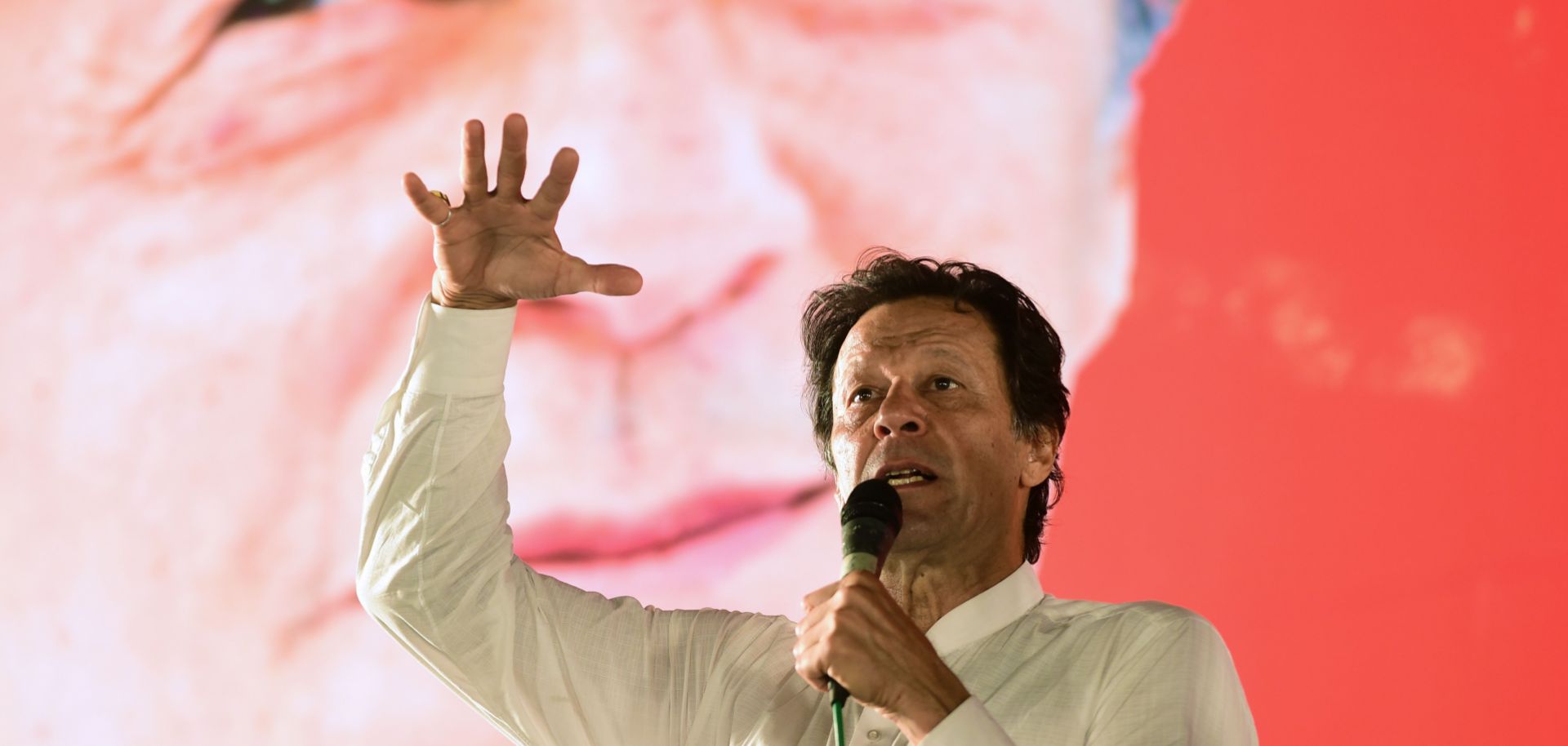ASSESSMENTS
What Pakistan's New Prime Minister Faces in Power
Aug 15, 2018 | 09:30 GMT

Pakistani cricket star-turned-politician and head of the Pakistan Tehreek-e-Insaf (PTI), Imran Khan, addresses a political campaign rally ahead of the general election in Islamabad on July 21, 2018. Pakistan held the general election on July 25, 2018. (Photo by FAROOQ NAEEM / AFP)
(FAROOQ NAEEM/AFP/Getty Images)
Highlights
- Prime Minister Imran Khan's incoming administration will maintain a hands-off approach on Pakistan's military-dominated foreign policy, meaning Islamabad's strategy of asymmetric warfare in Kashmir and Afghanistan will endure in spite of U.S. pressure.
- Since Islamabad requires a strong relationship with China for diplomatic and financial support, it will not alter its involvement in the China-Pakistan Economic Corridor in spite of domestic opposition.
- Because Khan will seek a bailout from China to shore up Pakistan's diminishing foreign exchange reserves amid the country's expanding debt burden, he is unlikely to realize his vision of creating a social welfare state to lift up the poor.
Subscribe Now
SubscribeAlready have an account?
